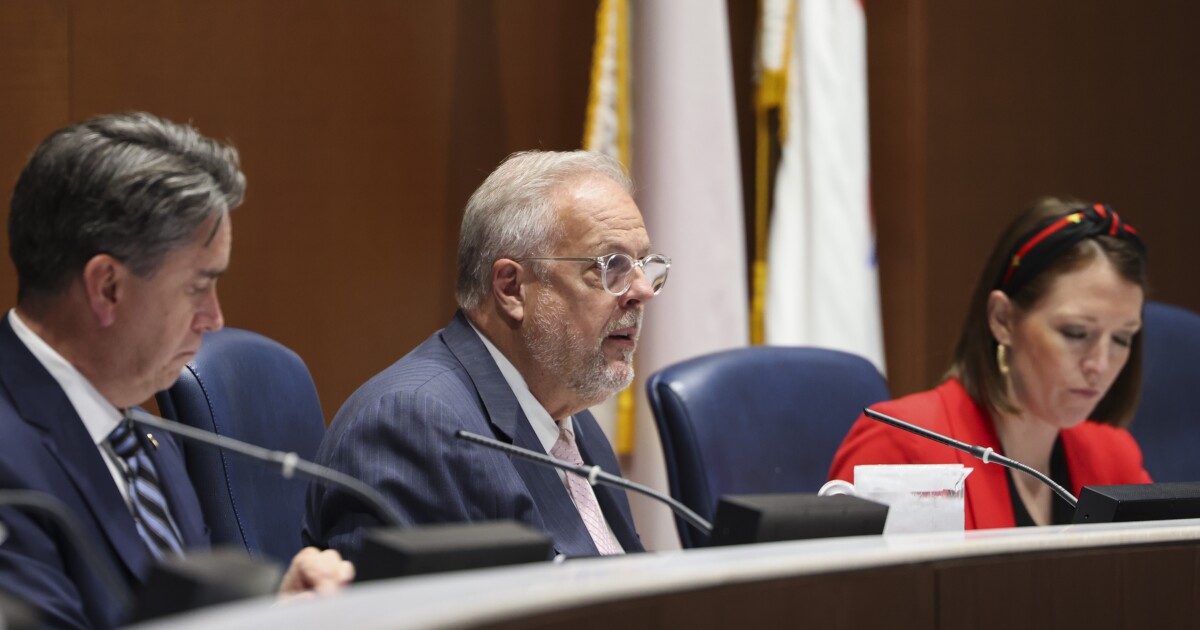Taxes and utility bills in Arlington are poised to go up around $12 a month on average after the city council voted Tuesday to approve fee and tax rate increases.
The council voted 7-2 to give initial approval to the tax rate increase Tuesday and will vote again Sept. 16 to give final approval to the tax rate, utility fees and the budget, with the latter getting 8-1 approval during the meeting.
Council members Bowie Hogg and Andrew Piel, who represent Districts 7 and 4, respectively, voted against the tax rate increase.
Piel was the sole vote against the proposed budget.
Piel told KERA News he voted against the tax rate increase after talking to constituents who didn’t want to see their bill go up.
“Everybody understands that the budget is pretty much a zero-sum game,” he said. “If you want the city to do more, it has to have the money to do what it wants to do more. If you want to have lower taxes, you have to be OK with the city doing less for you.”
Piel said his constituents told him that, given that option, they would “rather have the city do less.”
Increasing taxes is part of the city’s plan to address a $25 million deficit projected for the 2026 budget. The tax rate increase is part of the final push by city leaders to eliminate that deficit, in addition to spending cuts and fee increases.
Arlington’s budget woes come after an unprecedented number of successful property value protests and the decision by the Tarrant Appraisal District to delay home value assessments until 2027.
The city has also seen what City Manager Trey Yelverton has previously described as an unusually high number of successful property value protests. Yelverton said the city wants its property owners to contest high valuations but said the number of successful protests has exceeded trends and created new problems.
Increasing some fees, like those for utilities provided by the city, can help close the gap further.
But even with those cuts, the budget still needs millions of dollars to bridge the rest of the funding chasm.
Why a tax increase?
Increasing the property tax rate by 3 cents to 62.98 cents per $100 valuation would provide the city with more than $11 million in revenue next year, according to the city.
Two cents of that increase would provide around $7.4 million, enough to balance the 2026 budget.
The additional cent of the tax rate increase would bring in about $3.7 million. In 2026, that money would be used for a one-time investment in technology, facility maintenance and the city’s fleet of vehicles. In 2027, it could help the city avoid further budgetary challenges created by new business property tax exemptions and traveling housing finance corporations.
Mauricio Galante, the council member for District 1, said the need to increase taxes is unfortunate but he voted for it because it was the only way left to close the gap.
“We had no other option because the Tarrant Appraisal District decided to put an appraisal freeze on homeowner properties,” he told KERA News after the vote.
Galante said that as an Arlington taxpayer he doesn’t want to see taxes go up. But after cutting millions in spending and finding ways to raise millions more through things like increased fees, the last realistic option was to raise taxes.
The city lowered the property tax rate every year from 2017 until 2025, when the rate went up by 1 cent from 2024. Raising taxes is the only option left for the city that does not include reducing funding for services or cutting employee benefits and compensation.
The city previously said the changes to water and wastewater charges would see the average home’s utility bill go up about $7 a month. The average home’s property tax bill would go up around $5 per month.
Other efforts to close the gap
City staff have been working with the council since November 2024 to identify ways to tighten the belt. They include eliminating city jobs, cuts to programs and partnerships and reductions in funding to city departments.
Those cuts include eliminating 22 positions that would be supported for one more year through what Yelverton called a “challenge grant.”
Those employees would be notified that their position was placed on a challenge grant and have about a year to either transfer to another job within the city or find employment elsewhere. The city would not be able to use this method again next year to keep those employees on the city’s payroll – the positions would have to be fully eliminated at the end of the grant.
Yelverton previously told the council he expects all 22 employees to find other positions in the city.
Yelverton presented the council with options earlier this year to make cuts to employee benefits and withhold a cost-of-living raise. Those options did not move forward after police and firefighter unions expressed concerns the cuts would negatively impact the city’s morale and competitiveness in the job market.
State law requires cities to have a balanced budget, meaning the council could not approve its financial plan for 2026 with a deficit.
Got a tip? Email James Hartley at jhartley@kera.org. You can follow James on X @ByJamesHartley.
KERA News is made possible through the generosity of our members. If you find this reporting valuable, consider making a tax-deductible gift today. Thank you.
